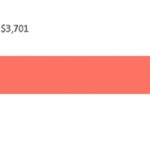Freedom’s Thinking Machine, Versus an Ignorant Elite
Of the various commentaries I’ve seen, Kevin Williamson wrings the most truth out of the embarrassing display of a debacle that is Davos:
Conservatives are generally inclined to make a moral case for limited government: that transfers are corrupting, that taxes should be collected only to the extent that they are essential, that regulation is a necessary evil and that as such it should be kept to a minimum. That is generally true and persuasive, but the more important argument is the problem of ignorance. Even if Congress were populated exclusively by saintly super-geniuses, there is only so much that 535 human beings can know and understand. The more that decision-making is centralized in political agencies, or even in elites outside of formal government, the more intensively those decisions will be distorted by ignorance. This is true of market-oriented institutions, too, in the sense that big businesses make big mistakes. One of the lessons of the 2007 financial crisis is that the guys who run the banks do not actually know that much about how banks work, even if they know 100 times what the banking regulators know. Free markets offer a critical, if imperfect and partial, corrective to that in the form of financial losses and business failures, which is why things like cars and computers consistently improve while schools and welfare programs don’t. Big markets with lots of competing buyers and sellers are the biggest thinking machines we have, offering the broadest epistemic horizon that our species has figured out how to achieve.
The part about “elites outside of formal government” has been edging its way into my consciousness, lately, for Rhode Island issues. Among a few of us, it’s almost become a game to spot the Brown graduates in government and its satellites. From a certain point of view, the audacity of Governor Gina Raimondo hasn’t been so much that she’s looked out of state to hire, but that she’s upped the number of framed Yale certificates on the walls of state offices.
The whole distorted mess of Rhode Island governance is beginning to be revealed as something cooked up (by hired help) at a casual-attire intercollegiate social among people who are about as ideologically diverse as the Amish. Politicians and bureaucrats in state government make the pronouncements, which are explained and supported in the best of lights for the slightly-less-insider readership of the Providence Journal and other news media, with all of the gears greased with Rhode Island Foundation money. I’m simplifying for effect, of course, but not by as much as it may seem.
The bottom line is that Rhode Island won’t escape its rut until it’s possible for people who didn’t make it to the social (and people who wouldn’t have gone, even if invited) to win policy battles every now and then.


